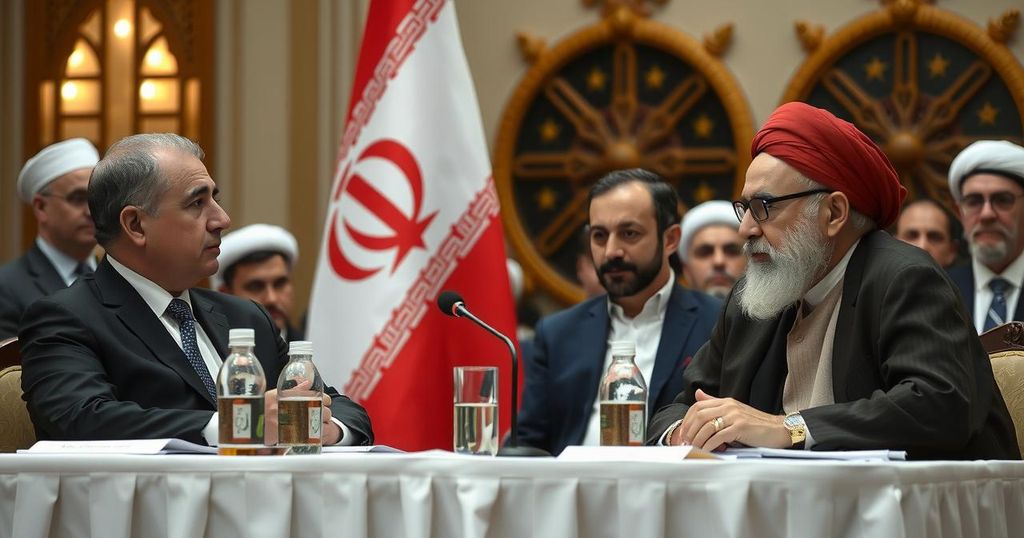Global news
” ERDOGAN, ABBAS ARAGCHI, ABD, AFRICA, ASIA, ASSAD, D - 8 ORGANIZATION FOR ECONOMIC COOPERATION, DEVELOPING - 8, DIPLOMACY, FIGHTER JETS, FOR ECONOMIC COOPERATION, GAZA, GAZA STRIP, INDONESIA, MALAYSIA, MIDDLE EAST, MILITARY ACTIONS, NIGERIA, REC, SYRIA, SYRIAN CONFLICT
Fatima Khan
0 Comments
Turkiye and Iran Leaders Convene at Muslim Summit in Cairo
On Thursday, the leaders of Turkiye and Iran met in Cairo at a summit of Muslim-majority countries, emphasizing calls for unity in Syria amid regional crises. The summit noted renewed diplomatic relations between Egypt and Iran while underscoring the necessity for urgent action against ongoing conflicts in Gaza and Lebanon.
On Thursday, the leaders of Turkiye and Iran convened in Cairo for a significant summit involving eight Muslim-majority nations, marking their first meeting since the fall of Syrian President Bashar Assad. With Turkiye traditionally supporting the opposition while Iran has backed Assad, the context of the summit is underscored by ongoing regional conflicts, including the situation in Gaza and the unrest in Syria.
In his remarks, President Recep Tayyip Erdogan of Turkiye emphasized the need for unity in Syria, advocating for the restoration of the nation’s territorial integrity and the establishment of peace among all religious and ethnic groups. He expressed hopes for a Syria free from terrorism and for reconciliation among its people. In a parallel emphasis on the crises facing Gaza and Lebanon, Iranian President Masoud Pezeshkian articulated the moral duty of those present to act against the suffering experienced in these regions.
Pezeshkian’s visit to Egypt marks the first by an Iranian president since Mahmoud Ahmadinejad’s in 2013, highlighting a potential thaw in the historically strained relations between Egypt and Iran. Recent diplomatic engagement has increased, especially as Egypt has played a mediating role during the violent conflicts in Gaza. Notably, both nations have exchanged visits from senior diplomats in recent months, indicating a shift toward renewed diplomatic relations.
Ahead of the summit, Pezeshkian hoped their discussions would resonate globally, advocating for an end to “Israeli aggressions and violations in Gaza, Lebanon, and Syria”. Meanwhile, Erdogan previously engaged with Egyptian President Abdel Fattah El-Sisi on matters related to economic cooperation and joint regional efforts earlier this year. The gathering was under the auspices of the D-8 Organization for Economic Cooperation, established in 1997 to enhance collaboration between member nations, which include Egypt, Turkiye, Iran, Nigeria, Pakistan, Bangladesh, Indonesia, and Malaysia.
The D-8 Organization for Economic Cooperation comprises eight Muslim-majority countries and aims to bolster economic and political collaboration. Established in 1997, its member nations span diverse regions, from Southeast Asia to Africa. In the context of ongoing geopolitical instability in the Middle East, including the aftermath of Syria’s civil war, relations between various nations have been recalibrated. The meeting between the leaders of Turkiye and Iran serves as a pivotal step toward fostering dialogue and potentially resolving some of the regional conflicts afflicting these countries, particularly in light of their differing historical stances on Syria.
In summary, the recent summit in Cairo brought together the leaders of Turkiye and Iran against a backdrop of significant regional conflicts and offers a platform for potential collaboration and resolution. The leaders’ calls for unity and an end to violence in Syria and Gaza reflect the urgent need for diplomatic engagement in these tumultuous times. The evolving relationship between Egypt and Iran further emphasizes the shifting dynamics within the Middle Eastern geopolitical landscape.
Original Source: www.arabnews.com




Post Comment